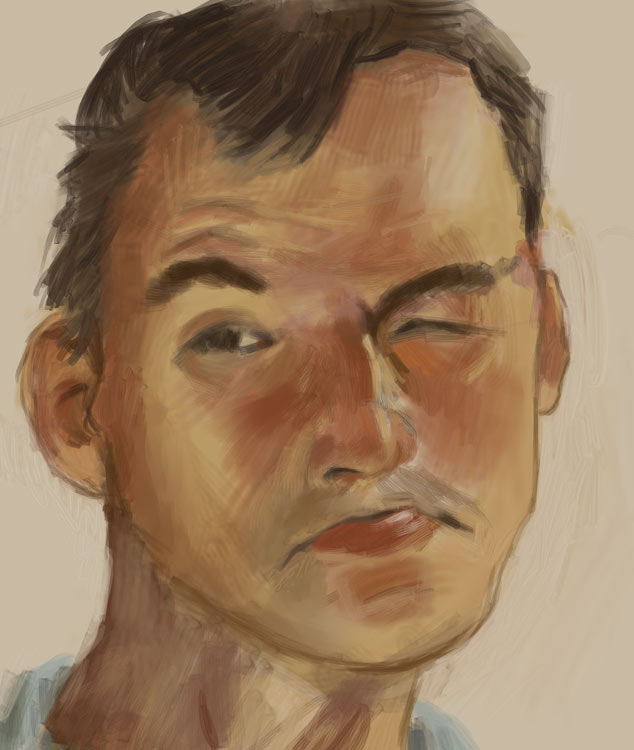Where is all your data?...A Primer on Digital Ownership
Learn how to take control of your digital life and ensure your personal data remains truly yours.
- Authors

- Name
- Adam R Farley
- @farley_adam
- Published on
- Published:
Do you have any idea where all your data is?
I know I don't.
Mine is scattered. Across innumerable servers. Hard drives. Cloud storage, floppies long forgotten. EHRs and HR systems. Dropped behind me like breadcrumbs.
Before the internet you could lose your data - leave a floppy somewhere, throw out a hard drive, forget a laptop on the train without a good password. But the breakneck pace of general networking changed all that. I would would assume my abandoned email and instant messaging accounts are long gone, but I have no proof. Likewise all the thousands of websites I've entered text into. Likely not all saved. But who knows!
Not all data is equal, however. My name and shipping address - because it shows up on my land plat is more/less public information. Not that I want to share it too much. My medical history, photos of my family, my personal notes, journals, financial information - those you and I care more about.
So what can one do about this?
First things first your choice of software is pretty important. If you use software created before the internet (or at least that hasn't changed in form since then) - you are already familiar with "local-first" type software. Think microsoft excel, word, photoshop, most graphics apps. Local-first used to be the only model for handling data. And for software that continues in this tradition it still is!
Then came SaaS, rich javascript driven website. And that's when Evernote and apps like it changed dramatically. Google Docs was born. Handling data for you became the norm. Apps like Evernote went from storing all of your data locally and using a sync server to distribute it between your computers to more/less becoming just another web browser wrapped up and packaged to look like an application. Every keystroke, every new note, every search happens on a machine you don't own. Getting your data out went from a quick tool you could run quickly yourself to using an "export" tool which only half works. They've got your data for good, and they don't have a lot of interest in sharing it.
Needless to say that I wrote What's Next to be local first. Yes, it is distributed like a webapp through browsers, but by principle it treats any data you bring, as your data. The data is stored within your browser. It can be easily exported and the code to do this is yours forever - even if the site disappears. The data can be exported and imported without losing fidelity. Likewise you can sync external data on an ongoing basis (say a giant google sheet) so you not only own your data, but you can use your data.
This idea - ByoD - bring your own data, extends "local first". It's a slightly separate concept needed for full data ownership. It starts with the assumption that you always own your data. You merely bring it into applications to use. The business model for What's Next intentionally incentivises an unencumbered approach to data. We want to streamline your interactions across your data, not gatekeep your data or lock you in by making it difficult to do what you want or need to do with it. You should be able to update your data, import part of it, change it, sync it back, without needing to share it with What's Next servers.
What about when you do want to share data narrowly with a few trusted folks? What promises does your software give you?
These days data ownership is as important as application ownership. Open source was created to help with application ownership. But creative commons and other data licensing only covers the public sharing part of data ownership. What about the vast datas never intended to be widely shared? You deserve to know exactly what data you and you alone own and can view, what data you've shared with specific people and what you've published for the world. And to share only the fully public data back to corporations (or to What's Next!) with explicit terms of use to benefit all other users of the software. Terms like creative commons or other sharing, ownership preserving licenses.
If you pick the right software, you shouldn't need to worry about it. You shouldn't need to look over your shoulder. Or worry what has been shared where. Even if there's a change in company ownership. What's Next aims to remove this from your working memory when you need to focus. It's yet one more thing we aim to take care of for you so you can focus on what's most important to you - making some genuine impact.
Ready to Own Your Life?
Join other users who've transformed their productivity
Start Your 14-Day Free TrialNo credit card required • Cancel anytime • Setup in under 5 minutes